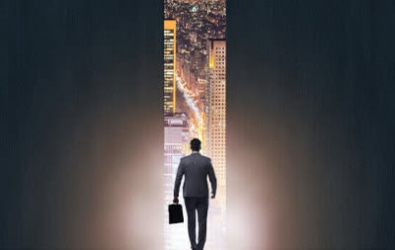Most economists would agree capitalism is an imperfect system, but also the best we have.
Imperfect because of the rather annoying side-effect of financial crises, which seem to be occurring with increasing frequency.
But this glitch in the system could be smoothed out if we refocused the system back to its basics, Stanford University visiting professor of economics and Milton Friedman scholar Robert Leeson said.
"We must refocus capitalism on capital," Leeson said at the annual Australian Custodial Services Association conference in Sydney last month.
It is not every day that we hear a call for revolution during a financial services presentation, but Leeson suggested just that.
He argued capitalism without crises was possible.
Not only is it achievable, but it is also the title of his next book.
In this book, Leeson will argue that all we have to do to fix the system is take control of capital flows.
"Financial architecture is bust; there is no doubt about that. It is a defective system that can't be tweaked. We have to redesign our financial architecture," he said.
The solution was simple, he said.
All it incorporates is taking deposits away from banks, nationalising savings into an Orwellian-sounding institution that Leeson called the National Savings Bureau, and letting banks compete for access to capital through an auction system.
To make this all the more effective, we should also get rid of income tax and replace it with a tax that is only charged on the money people spend on products and services.
And just like that, a utopian system would become a reality, Leeson argued.
"The benefit of [this system] is that the expenditure is not stopped in any way.
"The other benefit is that as confidence moves up and down, the demand for [capital] will change as well, but price clears the market, because intermediaries bidding for those funds will already know what the market conditions are and the bids will reflect those market conditions."
Installing the government as a gatekeeper to capital was beneficial for everybody, because it eliminated the crippling effect that a lack of confidence could have on the system, he said.
"Not only will this eliminate the financial crises, it will eliminate the business cycle as well," he said.
"The elixir of macro-economic prosperity can be discovered through a Milton Friedman-style price auction method."
The model could be easily adjusted for the Australian market using superannuation savings, he said.
It would only require the abolition of the 15 per cent tax rate to allow its citizens to save for their retirement tax free.
Oh, and government control over all super assets.
Perhaps an idea for Stronger Super, the sequel?





